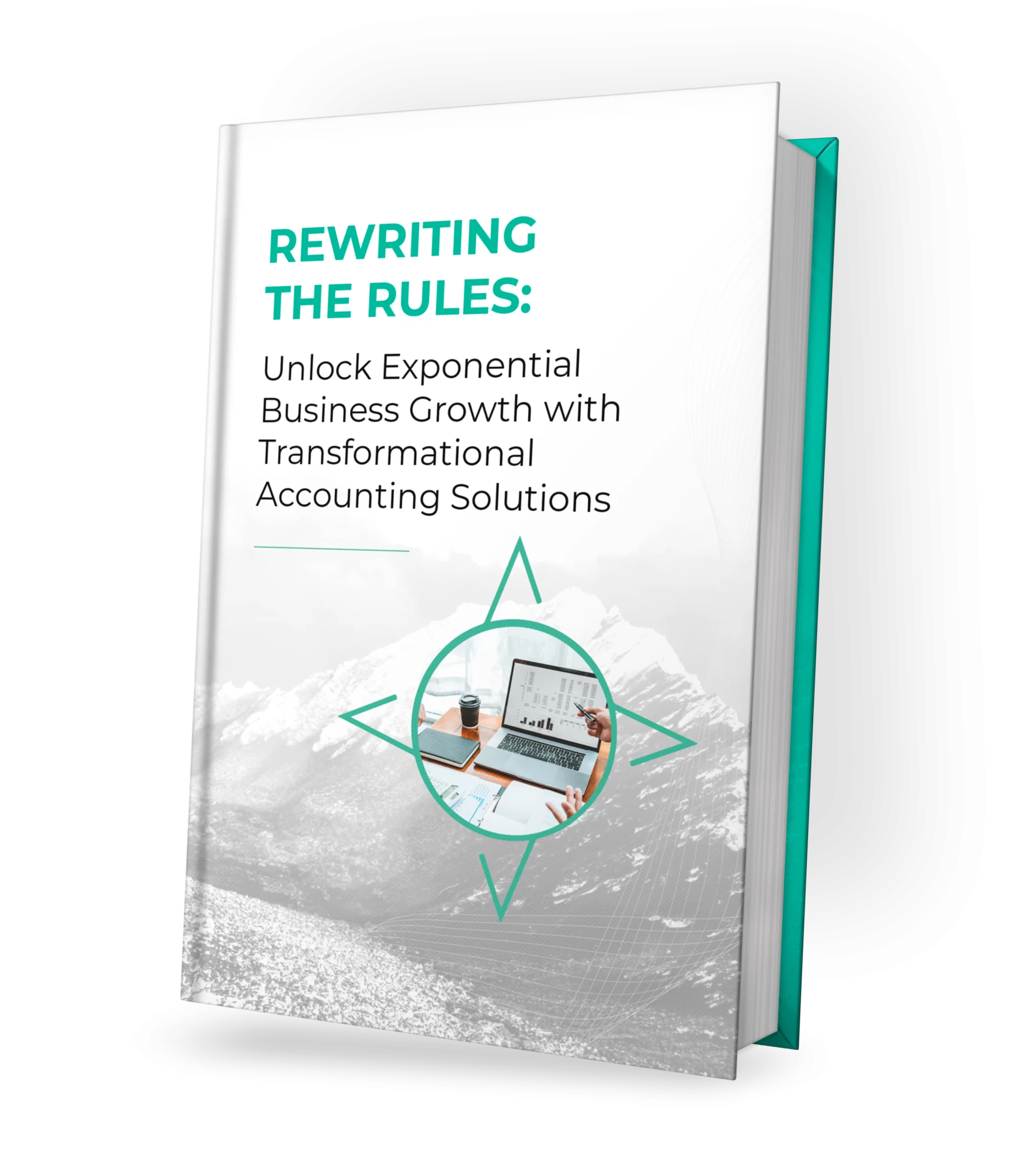Introduction
In the entrepreneurial world, navigating the road to financial freedom is complex. Many believe they must go it alone, but Certified Public Accountants (CPAs) offer valuable services like outsourced accounting, strategic tax planning, and financial technology support, providing insights to optimize financial operations and align with business goals.
Table of Contents
- Outsourced Accounting Services
- Finance as a Service
- Strategic Tax Compliance and Advisory
- Building & Supporting Financial Technology Stack
- Conclusion
Outsourced Accounting Services
With Outsourced Accounting Services, CPAs can play a pivotal role. From Bookkeeping and Accounting to monthly financial reporting, a CPA can provide the right insights can empower business owners to make informed decisions that align with their financial goals and strategies. Let’s dive in.
Accounting vs Bookkeeping
Many entrepreneurs confuse bookkeeping and accounting, but they are actually two separate scopes of work. Below are some features and drawbacks of each:
- Bookkeeping: With bookkeeping, the books are kept up to date, but without much consideration around standards or outputs. Below are some of the features of bookkeeping:
- Mostly cash basis
- Activity is booked based on transactions in the bank feed.
- Primarily for tax purposes, as insights are often lacking.
- It’s the first step in financial management, focusing on recording and organizing financial transactions.
- Typically, bookkeeping is a relatively cheap and will not set you back very much on a monthly basis.
- Accounting: In accounting, a professional team is responsible for managing the financial records of a business. The goals are to provide the most useful information to the stakeholders so they can make important decisions. Below are some key features of financial records kept up with proper accounting:
- Can be accrual basis
- Revenues are recognized in the periods in which they are earned.
- Expenses are recorded in the period in which the costs are incurred.
- Able to support reporting standards (GAAP, Tax Basis, IFRS, etc.)
- Accounting also includes analysis and insights into the performance of the business with recommendations.
- It’s a more comprehensive process that interprets, classifies, analyzes, reports, and summarizes financial data.
- Having an accounting team on your side is typically more expensive thank bookkeeping, but the insights gained provide a quick return on investment.
Monthly Financials
With a CPA, entrepreneurs typically get their financials monthly with the necessary information to make decisions and communicate performance to stakeholders. Below are some features of the monthly financial process:
- Financials are provided monthly, reflecting the performance of the business and corresponding insights.
- These reports can include balance sheets, income statements, and cash flow statements.
- They provide a snapshot of the financial health of the business, helping in decision-making and future planning.
Finance as a Service
Finance as a Service (FaaS) encompasses a broad spectrum of essential financial functions. Utilizing CPA Services to provide valuable FaaS support can help every company through setting the roadmap for financial growth, comparing actual performance against budgeted expectations, or crafting a compelling financial story for investors.
Annual Budgeting and Recurring Forecasting
Understanding the difference between budgeting and forecasting is crucial:
- Budgeting (Annual Operating Plan): Done once a year to set expectations, plan for compensation targets, and approve departmental spend. It’s a roadmap for the company’s financial growth.
- Forecasting: Done more frequently, monthly or yearly, to update expectations and take action. It’s a tool for managing uncertainties in the business.
- Multi-year Projection: Like a budget but used to share with outside stakeholders, typically investors or lenders, to help tell the story of the business and the strategy for the future.
Financial Planning and Analysis
Financial Planning and Analysis (FP&A) serves as the analytical engine of a company, employing a systematic approach to evaluate financial performance, identify variances, and offer actionable insights to enhance profitability, liquidity, solvency, and efficiency.
- Analysis of the Financials:
- Budget vs Actuals: Utilizing the budget to compare performance against expectations. It helps in identifying variances and taking corrective actions.
- Performance Ratios: These ratios provide insights into profitability, liquidity, solvency, and efficiency of the business.
- Insights and Recommendations: Based on the analysis, actionable insights and recommendations are provided to improve performance.
Fractional CFO Services
Fractional CFO Services provide the expertise of a Chief Financial Officer on a part-time or temporary basis, offering strategic guidance, support in fundraising, and the development of robust financial processes that align with the business’s growth and scalability needs.
- Helps set the strategic direction of the business and plan for execution.
- Supports fundraising with outside investors or lenders:
- Financial Due Diligence Process: Ensuring that all financial information is accurate and in order.
- Telling the financial story: Presenting the financial data in a way that resonates with investors or lenders.
- Building financial processes: Creating robust financial processes that support the growth and scalability of the business.
Strategic Tax Compliance and Advisory
Navigating the intricate landscape of tax compliance and strategic tax planning is a critical aspect of business management. In the below section, we’ll explore the ways CPA Services can support entrepreneurs through Tax Compliance and being a Strategic Tax Advisor.
Tax Compliance
Tax Compliance is a fundamental aspect of CPA Services. Making sure the business meets its calculation, payment, and filing requirements is key. Below are some ways CPAs can help:
- Income tax calculations and filings: Ensuring that all income taxes are calculated accurately and the respective State, Local, and Federal returns are filed on time.
- Sales Tax Support: Managing the complexities of sales tax across different jurisdictions.
- Other tax filings: Including payroll taxes, property taxes, and other business-related taxes.
Strategic Tax Advisor
Having a Strategic Tax Advisor at the ready can significantly help a founder or entrepreneur optimize their position and set the tax strategy for the future. Below are a couple ways a CPA can help:
- Optimize Tax position: Optimizing your tax position involves identifying opportunities to minimize tax liability through legal and strategic means, such as taking advantage of available tax credits, deductions, and incentives.
- Ongoing tax planning for changes that occur throughout the year: Whether it’s a change in business structure, a significant purchase, or a shift in revenue, these changes need to be considered and planned for to avoid unexpected tax liabilities.
- Quarterly estimated tax payment meetings: Quarterly estimated tax payment meetings allow for a continuous assessment of your estimated tax payments, ensuring that they are in line with your current financial performance and projections to avoid over or underpaying.
Building & Supporting Financial Technology Stack
Building and supporting the financial technology stack is a process that plays a vital role in the overall efficiency and effectiveness of a business’s financial operations. From defining the ideal state for various financial functions to selecting the right tools and maintaining them, this section delves into the essential aspects of creating a robust financial technology infrastructure that aligns with the business’s needs and goals.
Assessing the Business and the Inputs/Outputs
Assessing the current state and defining the ideal state for financial information distribution, is an important first step to designing a tech stack that works. Below are some of the considerations for the current state assessment.
- Order to Cash: How does the company invoice and collect from its customers and are there any issues that need to be fixed to improve cash flow.
- Procure to Pay: What are the ways in which the company pays its bills and are there any updates that need to be made to streamlining the bill payment process.
- Financial reporting: What is the process for accounting and creating financial reports to share with stakeholders
Building the System
Once you assess the current state and define the ideal future state, the next steps is to build the system. Below are the ways entrepreneurs can utilize CPA Services to build the right system:
- Selecting the right ERP (QuickBooks Online, Sage Intacct): Choosing the right Enterprise Resource Planning (ERP) system that fits the business’s needs.
- Integrating third-party applications: Apps for invoicing and collections, bill pay, employee expense reports can enhance the functionality of the ERP system, providing a comprehensive financial management platform with reduced manual involvement.
- Building customized dashboards and sharing with the leaders in the company provide real-time insights into the financial performance of the business.
Maintaining
After the system is built and the accountants are able to operate efficiently, the team goes in to maintenance mode. This scope typically includes:
- Ensuring that the financial systems are always available and running smoothly.
- Regularly checking and updating integrations to ensure seamless data flow.
- Making recurring updates based on new requirements to adapt the financial systems to the changing needs of the business.
Conclusion
The journey to financial freedom is not a solitary one. By embracing CPA services, entrepreneurs and founders can gain valuable insights and support that enable them to run their businesses efficiently and profitably. To see how we may be able to help your company, contact us today.

